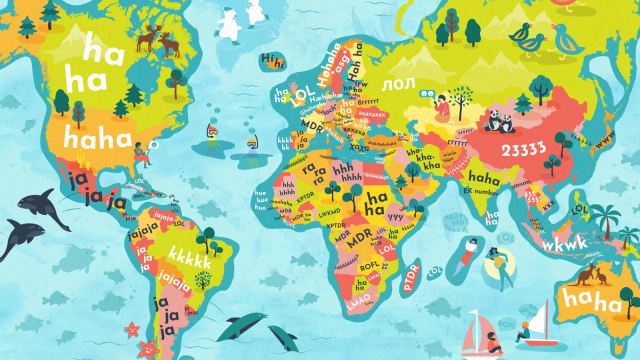Greek has at least 4 words for love. Arabic has 11. Here’s what they have in common

- All of the world's major traditions have a lot to say about love. It's universally recognized as one of the most powerful of all human emotions.
- Broadly, we can divide love into three types: sacrificial love, the love of doing a thing, and romantic love.
- Love is what defines humans. For however much love is “just” a soup of hormones, it’s still the single most important aspect of human existence.
Of all the human emotions, love is the most powerful. Fear, anger, ambition, greed, and lust all have their pull, but they all play second fiddle to love. A parent will brave their worst fear, a friend will drive five hours, a brother will give up his job, a spouse will chain their lust — all for love. Love is what beats back the sad, lonely, and bitter in the world. A life without love can never be complete.
But, for such a great and prodigious thing, love is blurry, vague, and indefinite. One problem is that each of us will experience love a certain way, and we have no possible way by which to tell if others are feeling the same. Shakespeare’s love, Beyoncé’s love, and your love might overlap in essential ways, but they can appear utterly dissonant in others. We can never go on a field trip into someone’s mind to see what “love” means to them.
The second issue with love is just how broadly we use the term. We love our romantic partners, but we also love a pet, a book, a movie, God (or gods), or the sound of someone’s voice. There’s nothing so painful to the teenager’s ears as, “I love you — as a friend.” Friend zone love. Ouch.
So, how are we to unpack love? Most major traditions spend a great deal of time exploring it. The Greeks have at least four words for love; Arabic has 11. The Baha’i faith recognizes four types of love; Hindus have five. But, very broadly, we can identify three trends to how different cultures understand “love.”
Sacrificial love
In Mark 12:31, it’s written that Jesus said, “You shall love your neighbor as yourself.” It’s one of the most famous and most quoted lines of Christian doctrine of the last two millennia. But what did he mean by that? In the original Greek of the New Testament, there are a great many words for love. The one that Jesus chose was agape.
Agape is a sacrificial love, utterly free of ego or self-interest. It’s the kind of love that cherishes another human being simply because they’re a fellow human being. In other words, agape is a kind of well-wishing that offers up every possible benefit to a person because it recognizes that they are worthy of flourishing.
When Jesus also says that we are to love our enemies, he again uses agape. Using this understanding, he means that you are to wish the best for other people, even if you don’t particularly like them. Martin Luther King, Jr. hammers this point home in his book Strength to Love: “We should be happy that he did not say, ‘Like your enemies.’ It is almost impossible to like some people.”
In Hindu and Buddhist traditions, a similar idea is found in the word maitrī. Maitrī is translated as “loving-kindness,” which means treating other people as if they are worthy of your care. Maitrī is not so much “compassion” or an ethical action, but more of a disposition toward people. It’s the opposite of bitterness, cynicism, spite, and competitiveness. Like agape, it’s wishing the best for someone else.
A labor of love
For a lot of us, when we engage in certain activities, it can feel a lot like love. When someone says, “I love hiking,” or, “I love painting,” it’s not so easy to dismiss as simply a turn of phrase. There are some activities that can evoke such passion and can transport you to some special place, that we need a word to capture that feeling.
Of course, the Greeks have one: meraki. Meraki is when you invest your soul into an activity or hobby. It might occur when cooking a meal or playing the guitar, and the feeling of meraki borders on euphoria. It’s why, for many people, there can be a peculiar sense of grief when they come to the end of something.
For instance, as you close a book for the last time, knowing you will never again meet those characters and share their story, it can feel like you’ve lost something. You have invested so much of yourself into the story that, when it’s over, it can feel a lot like heartbreak. The same is true at the end of an artwork, a marathon, or even a work project. Meraki is why athletes cry like babies after they win (or lose) an important match. Meraki is doing a thing with love.
I love you
But, when most people think about “love,” they don’t tend to think of maitrī or meraki. The hundreds of thousands of songs, sonnets, and soliloquies out there about “love” are not devoted to the love of hobbies. Whitney Houston did not sing about her love of collecting teapots. For most people, love is the romantic kind. It’s that of boyfriends, girlfriends, sex, and eros. (There’s another Greek word.)
In Arabic, there are said to be 11 “stages” of love. First, you have simple attraction (hawa) — the look across a bar or the smile on the subway. In the early throes of infatuation (kalaf), you obsess over one another. You spend all your time together, and the bed is your home. Soon you become enslaved to your partner (taym). Your heart is theirs, and never before have you been so vulnerable. Finally, love matures into a kind of insanity (huyum) where all reason is abandoned. Love, passion, and adoration are all that matter to you.
For Plato, eros (the erotic desire for someone) is only the first, immature step toward love. The love of a body — of sex and physical beauty — is a “vulgar” love. True or “pure” love is that which sees behind the façade. It recognizes the essence of someone — the bit which makes them, them — and it adores it. Plato’s love is not blind, but rather sees into the soul of someone. It says, “I see you, I know you, and I love you for it.”
Love actually
Whichever type of love we focus on, most people agree that it’s an essential part of a happy life. From the love we get from our parents, to the love we give to our partners, our friends, and our children, love is the beautiful oddity of the human species.
Love is what motivates us to do the brilliant and brave, as well as the stupid and reckless. It’s what the sentient robots of our sci-fi future never quite understand about us. For however much love is “just” a soup of hormones, it’s still the single most important aspect of human existence.
Jonny Thomson runs a popular Instagram account called Mini Philosophy (@philosophyminis). His first book is Mini Philosophy: A Small Book of Big Ideas.





